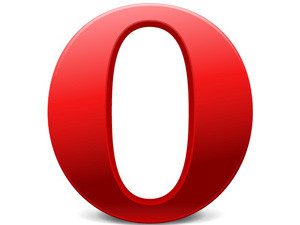
Browser maker Opera Software says it has recently seen the fastest acceleration in user growth in its history, and has reached the 300 million user mark.
The 300 million users are spread across all of Opera's browser products, including Web, mobile and TVs.
Opera CEO Lars Boilesen says 300 million marks the "first lap": "Now we are shifting into the next gear to claim a bigger piece of the pie in the smartphone market."
In line with this, the software company has announced it will make a gradual transition to the WebKit engine, as well as Chromium, for upcoming versions of its browsers for smartphones and computers.
Opera's CTO, Hakon Wium Lie, says: "It makes more sense to have our experts working with the open source communities to further improve WebKit and Chromium, rather than developing our own rendering engine further. Opera will contribute to the WebKit and Chromium projects, and we have already submitted our first set of patches: to improve multi-column layout."
Wium Lie adds: "The shift to WebKit means more of our resources can be dedicated to developing new features and the user-friendly solutions that can be expected from a company that invented so many of the features that are today being used by everyone in the browser industry."
While Opera is estimated to have only about 2% market share in the desktop browser space, its mobile offerings have fared much better - with roughly 10% market share, according to the latest data from NetMarketshare.
Opera's mobile success is largely due to its cost-reducing data compression technology, which has made the browser popular in emerging markets - especially on the African continent and in South-East Asia.
Acquisition rumours
Last year, following Facebook's IPO, rumours emerged that the social network was eyeing Opera Software as a potential acquisition target. At the time, Opera's founder, Jon von Tetzchner, said he thought Opera should focus on organic growth rather than being bought out. This week it was reported that Von Tetzchner has reduced his shares in the company from 10.9% to 5.18%. It has been speculated that this has paved the way for a potential buyout.
One of the factors that will no doubt play a role in the decision-making process, should a large player make a bid to acquire Opera, is the fact that Opera currently benefits from multiple partnerships with companies such as Google, which could be threatened by a takeover.
Google is Opera's default search partner for Opera Mini and Opera Mobile worldwide outside Russia/CIS, making the firm a major relationship for Google.
In October 2011, Boilesen commented that he would "love to" cooperate further with Facebook. "We are already Facebook's platform of distribution in emerging markets like Africa and India. A big part of the Opera Mini traffic is from Facebook. So we are already their channel in these markets," he said. "We would love to cooperate with Facebook, but the same goes for Google and everyone else. There are no limits here, because we are the leading mobile client in these markets."
Share